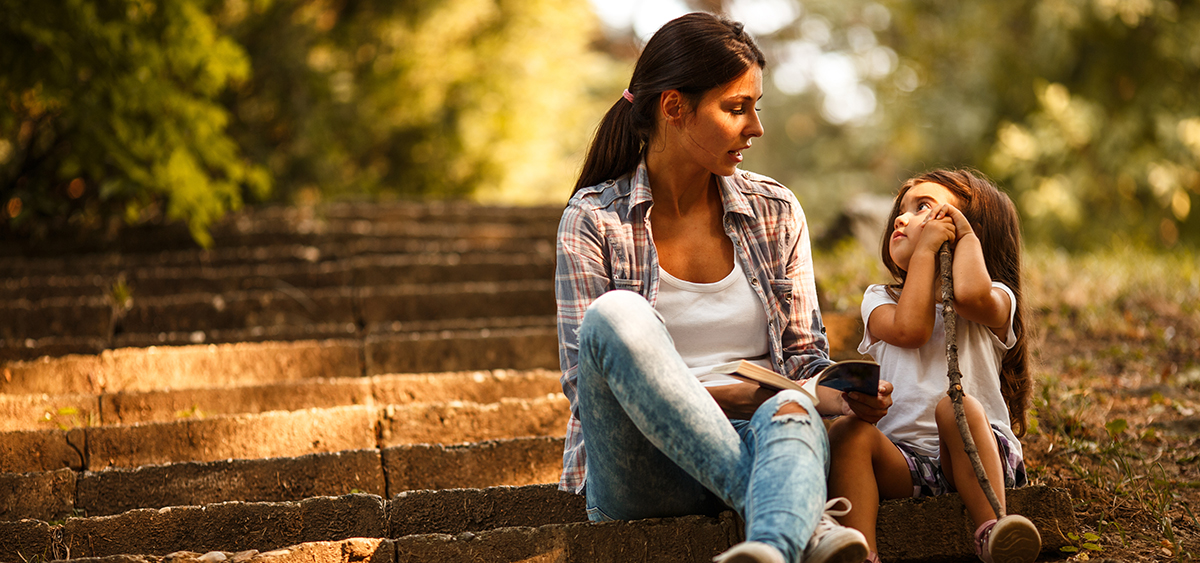
Talking With Your Child About Cancer
-
Telling your child that someone they know, or love has cancer is hard. And out of love, your first instinct may be to protect your child by keeping the diagnosis to yourself. But the truth is that it's generally best to talk to your child about the diagnosis as early as you can.
Talking with your child about a loved one’s cancer helps them prepare for any changes. It gives you a chance to make sure your child has accurate information about what’s going on—and to address their fears. Even very young children often overhear adult conversations or simply sense that something is wrong. Their fears may be worse than the truth—and they may not know it’s OK to share their concerns.
If you’re not sure how to start the conversation—or what to say—these tips may help.
How to tell kids about cancer
It helps to prepare.
Thinking about what you’re going to say—and even practicing—can help you feel more confident. Think about how much detail you plan to share and what questions your child might ask.
Set the tone.
Do your best to be calm, truthful, and reassuring. Remember that it’s OK to tell your child you don’t know.
You might start with a question.
For example, you might ask your child something along these lines: “Maybe you’ve noticed that your teacher has been gone a lot lately. Do you know why?” This lets you know what your child might already suspect—and you can continue the conversation from there.
Cover the basics.
Every child should know these four things:
- The name of the cancer, such as breast cancer or lymphoma
- Where the cancer is located in the person’s body
- How it will be treated
- How the child’s life will be affected
Tailor your explanations.
Consider your child’s age, personality and maturity levels. If you have more than one child, it may help to talk to each of them one-on-one. Keep in mind:
- Younger children need simpler, less-detailed explanations than older ones.
- Tell your child clearly that the cancer is not their fault, and it’s not contagious.
- You don’t need to explain every detail. Kids may be confused or tune out long explanations.
- You can share information in stages. For example, instead of focusing on long-term outcomes and uncertainties, you might tell your child about an upcoming surgery or treatment and how you hope it will help. Then make time to talk again when you know more.
- Reassure kids that their feelings are OK and that they can share them with you and other trusted adults.
Let kids ask questions.
Answer honestly and remember that it’s OK to say you don’t know. If kids ask about the possibility of death, avoid euphemisms, which can confuse children. Be clear that cancer is a serious illness and that some people do die, but share hopeful, positive information, like “Grandpa has very good doctors and they are helping him to get better.”
Remember, there’s no right or wrong way for your child to respond.
Kids might have questions, or they might need to think about the news on their own. Siblings may each react differently to a cancer diagnosis.
Keep talking.
Keep sharing information and encourage your child to come to you with any concerns.
Fox Chase offers a variety of support services to help patients and families cope with cancer. You can read about those services at FoxChase.org/Support .
